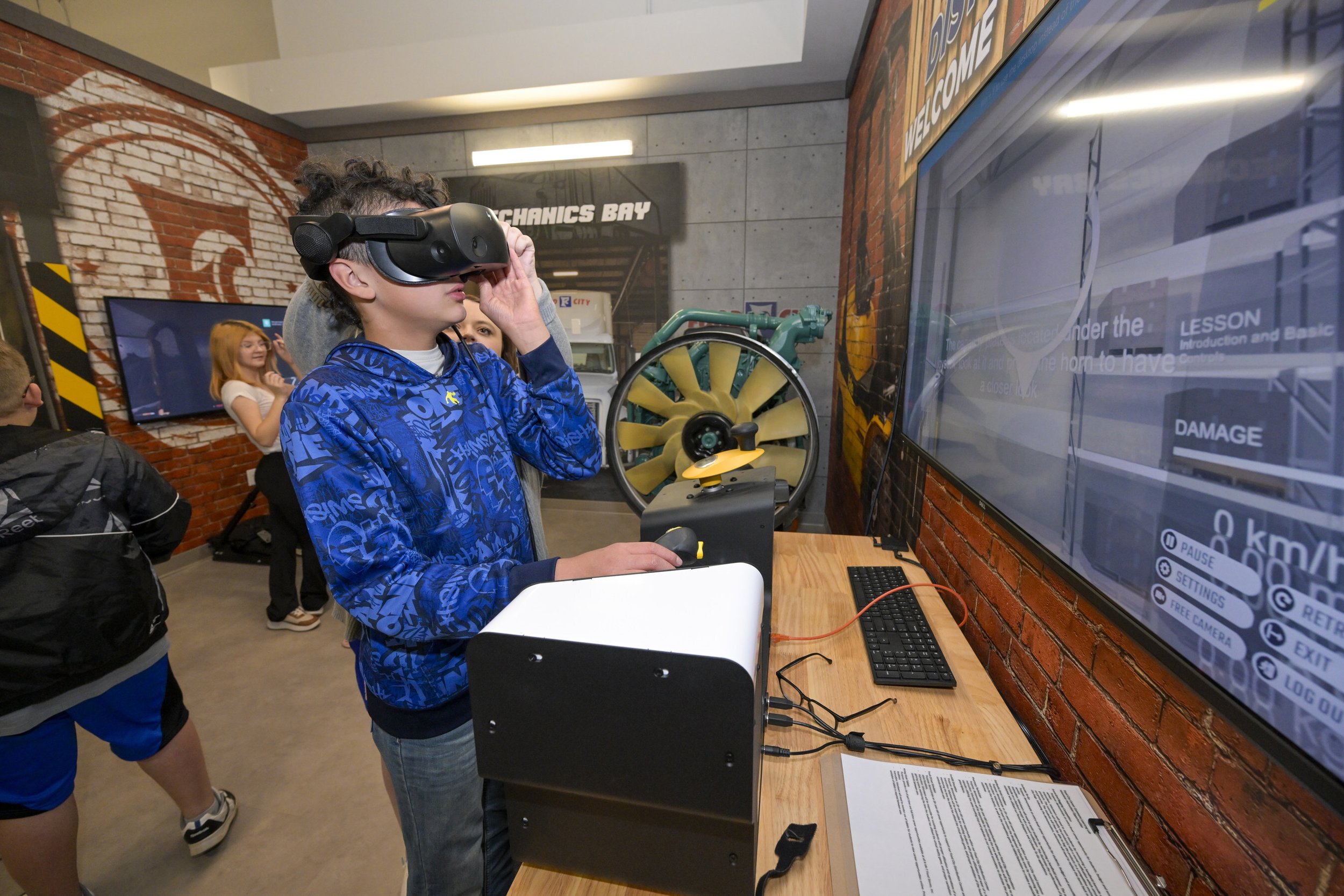EO launches Regional Workforce and Child Development Hub, expanding childcare and job training in Virginia

A student uses a VR headset during a job simulation activity for the transportation and supply chain sector, part of Career Commons, a 25,000-square-foot miniature city where students can explore various professions through interactive, hands-on experiences. Photo Credit : Earl Neikirk/Neikirk Image
EO Companies (EO) has officially launched the Regional Workforce and Child Development Hub in Abingdon, Virginia, transforming a former Kmart location into a multifunctional facility to support local economic challenges.
The Hub opened on 21 October 2024, and is designed to respond to the ongoing childcare crisis and post-COVID economic issues.
The inauguration was attended by leaders from various sectors, highlighting the collaborative effort involved in this initiative. Lack of childcare is an issue in rural America, which face a childcare gap significantly larger than in urban regions. The lack of accessible childcare creates substantial barriers to employment, particularly for mothers, and inhibits workforce participation. To address this, The Hub includes an early learning facility that is set to provide childcare services for nearly 300 children.
The $26.5 million project reflects a successful collaboration of public, private, and philanthropic partnerships, with nearly 80% of the funding sourced from private contributions. The Hub spans 87,000 square feet and offers 300 new childcare slots, facilitating greater workforce participation among parents.
Alongside childcare, the Hub features Career Commons, a 25,000-square-foot interactive space where students from 21 regional school systems can engage in hands-on learning experiences and explore various professions.
"Through our research, we've established that access to high quality childcare is as important to a region's economy as broadband, roads, and other infrastructure," explained Travis Staton, CEO and President of EO. "Without access to reliable care, families are sidelined from working and employers cannot run at full capacity. It can also make it more difficult to attract large employers to the area."




















